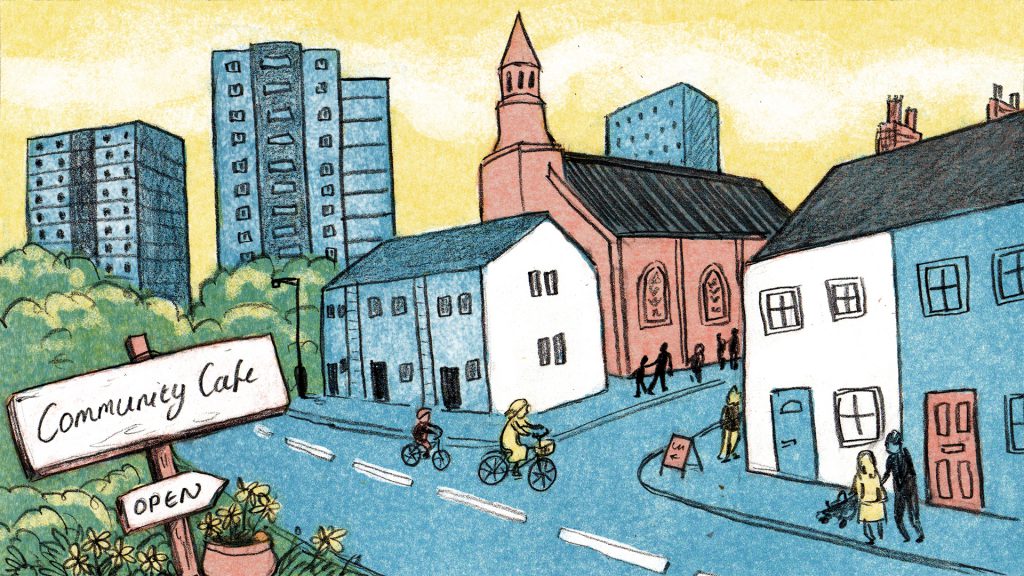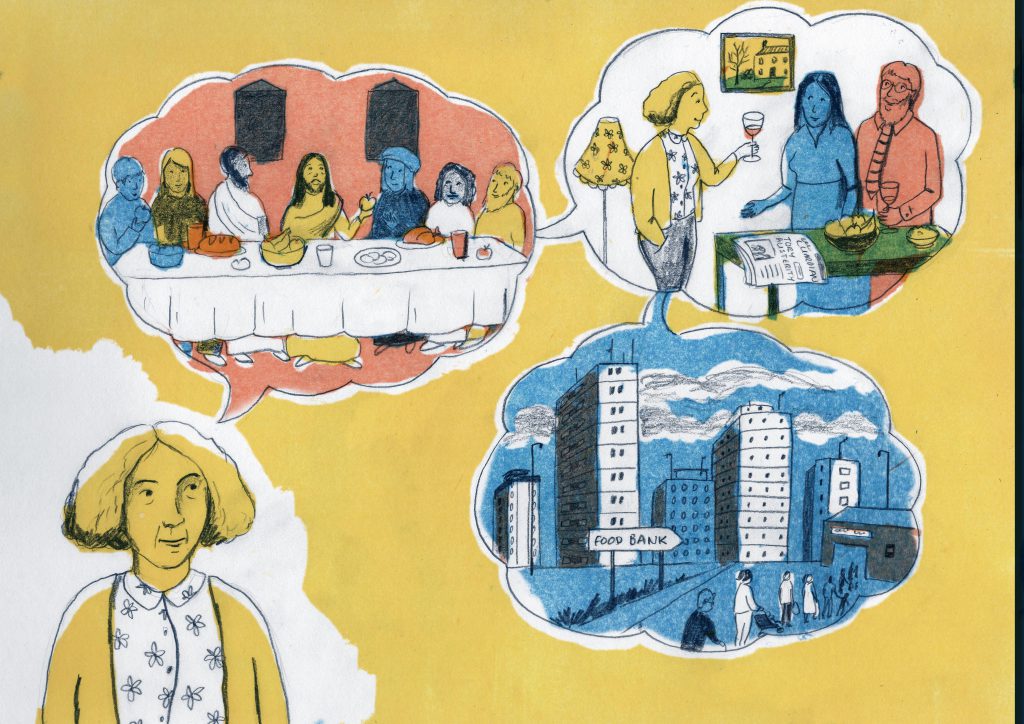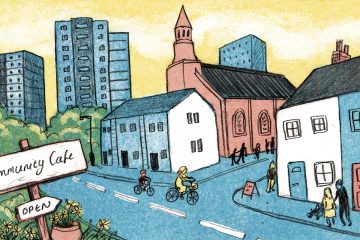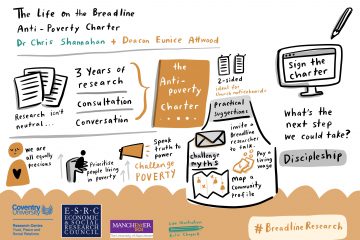On 21st October 2020 the House of Commons voted against extending holiday food provision for children who receive Free School Meals into the school holidays. This followed campaigning by a wide number of charities and by Marcus Rashford who started this petition to end child food poverty which has been signed by more than 450,000 people.
In this blog post Life on the Breadline researcher, Stephanie Denning, shares her research on volunteering and holiday hunger which has recently been published in the journal Cultural Geographies.

Volunteering and holiday hunger research
During my PhD at the University of Bristol I explored how people were motivated by their religious faith (in this case Christianity) to volunteer in response to holiday hunger.
Holiday hunger is a term used to refer to children not having enough to eat in the school holidays, and there an estimated 3 million children at risk of holiday hunger in the UK (Feeding Britain, 2017).
The research was participatory – from 2015-2016 I established and ran a MakeLunch project ‘Lunch’ through the charity TLG in an inner city church in an area where deprivation was in the top 5% of the UK. The project relied upon volunteers to run and welcomed local primary school aged children for an hour of play, and then a free hot lunch that volunteers and children sat down to eat together. There was no religious content for the children at the project, although the majority of volunteers were Christian. 42 of the 78 volunteers participated in the research by writing diaries on their experiences and/or in interviews. Through their own and my own experiences I explored motivations for volunteering at Lunch.
Main findings: religious faith as a motivation to volunteer – with effort and enthusiasm
Emerging from volunteers’ narratives (real names have been changed), faith was a key motivation to volunteer in three dominant ways: religious faith as action and a motivation to help people, faith and politics, and faith impacting upon a person’s entire life.
Religious faith was important in motivating people to volunteer at Lunch, but a motivation does not guarantee action: effort and enthusiasm were also required, and challenges needed to be engaged with along the way. Motivations therefore need to be continually renewed if a person is going to continue volunteering, and are not only of importance at the start of a volunteering journey.
In the research, effort was engaged with as striving to act despite challenges, and enthusiasm as a passion for action that can turn a motivation into volunteering.

Faith as a motivation to help people
Volunteers’ motivations were intertwined with the anticipated end goal of volunteering. The majority of volunteers were motivated by Biblical teachings and the role model of Jesus to help people in need and serve their neighbour:
I think for us it’s working with the community as a Christian, it’s about actually what are the needs of the people we are working with and how can we best support them because I guess that’s how Jesus worked.
Volunteer ‘Sarah’, interview, September 2016
Faith and politics
However, volunteers also often spoke of a faith motivation in relation to politics:
The theological aspect is to do with the hospitality of Jesus – food is such a big part of the gospels, Jesus is always feeding people and including everyone around the table, so the chance to live this out…was really compelling.
The political motivation comes from my absolute horror at the outcome of the recent [2015] General Election and the implications of the benefits cuts. …My reaction to the result was to want to get involved in direct action, partly because it’s needed on a practical level, and partly to equip me to argue against the prevailing right wing mythologies.
Volunteer ‘Violet’, diary, July 2015
This diary reflection was written by Violet 5 years ago following the 2015 General Election but it remains hugely poignant today on the balance between austerity, poverty, responding, and what the volunteer called “right wing mythologies” around need, deserving, and responsibility. Balancing her enthusiasm with the challenges of effort, Violet was keen that she was not a “middle class do-gooder” by volunteering at Lunch and wanted to learn from the children about their experiences in order to change others’ views and work for change on the causes of hunger. This later led to Violet taking part in the launch of Feeding Britain’s 2017 report into holiday hunger, and calling for government action.

Faith impacting upon a person’s entire life
Some volunteers did not initially mention their faith as a motivation to volunteer at Lunch and when asked responded with surprise:
Stephanie: Would you say your Christian faith influenced your wanting to help [at Lunch], or…?
Mark: Yeah ((pause)) in as much as it influences every decision, not in a: “I have to stop and check everything against my faith”, my faith informs my life at a more fundamental level anyway.
Interview with volunteer ‘Mark’, July 2016
This is important for understanding religious faith as a motivation for volunteering – contrary to how religious faith can be treated in research, faith is often not something that is categorised as a part of a person’s life, but rather affects how they act throughout their daily lives. However, this did not mean that action was easy:
I can talk and think. Commitment to doing I find harder and not easy or natural. But the moment came when I thought it’s just not enough to talk. Time to go. And do.
Volunteer ‘Jack’, diary, August 2015
Jack had preached on the importance of faith and action, but found that volunteering at Lunch was outside of his comfort zone – it required additional effort. He volunteered throughout the summer holidays in 2015 but did not return for future sessions – his faith motivation and associated enthusiasm could only go so far in overcoming the effort of action.
Each volunteer was therefore affected differently by their volunteering, which in turn affected their faith motivation and whether they would continue volunteering. Faith motivations are therefore inherently relational and fluid, rather than a static consideration as a person starts to volunteer.
The full paper ‘Religious faith, effort and enthusiasm: motivations to volunteer in response to holiday hunger’ by Stephanie is free to read here in Cultural Geographies.


